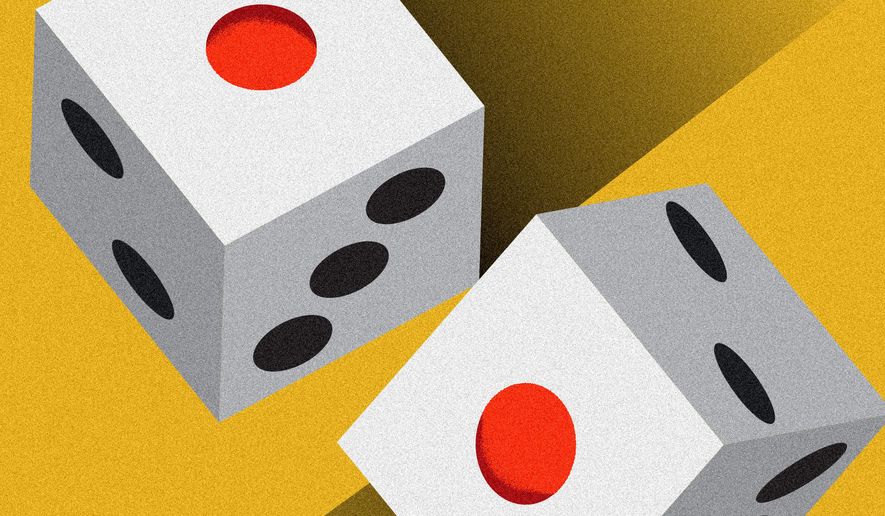OPINION:
In 2018, the Supreme Court voted 6-3 to strike down a federal law banning sports gambling, thus allowing individual states to decide whether to allow it or not. It didn’t take a genius to predict what might happen, especially when politicians can find new sources of revenue beyond income, property and sales taxes.
Last week, more than 30 people were indicted in a national sports betting scandal involving high-profile figures, including Portland Trail Blazers coach Chauncey Billups and Miami Heat guard Terry Rozier. Mr. Billups was charged in a scheme involving rigged poker games, and Mr. Rozier was accused of providing insider information to an illegal sports betting ring. A former player, Damon Jones, was charged with sharing insider information. The FBI said arrests were made in 11 states, with more likely to come.
What may have surprised many was the allegation that these schemes were linked to three Mafia families. Isn’t the Mafia the stuff of movies such as “Goodfellas” and “The Godfather”? People may have thought crime families had been put out of business years ago by federal agents such as Eliot Ness, then leader of a Chicago team known as the “Untouchables” that took on Al Capone. A TV series by that name ran from 1959 to 1963, starring Robert Stack as Ness. The series captivated American audiences.
Three of the five crime families allegedly involved in sports betting and rigged poker games are familiar to people with long memories: the Gambinos, the Bonnanos and the Genoveses.
The National Basketball Association, which has Fan Duel and Draft Kings as its “official” sports betting partners, issued a statement after the indictments. It read, in part: “We take these allegations with the utmost seriousness, and the integrity of our game remains our top priority.”
The “integrity of our game” was the first thing to go. Restoring it will be difficult.
One wonders how people making millions of dollars would be enticed by offers of a few hundred thousand dollars to do something they must have known was against the law. Perhaps it was the thrill one can get from such behavior. Maybe it was the instant cash delivered to their doorsteps. Whatever it was, it was crazy stupid.
Not all vices can be regulated. Prohibition is usually presented as the worst example. Although not everyone conforms to every law (if they did, the prisons would be empty), the law sets a standard that tells people what history and societies have shown is best for them and the nation.
Gamblers, like the poor, we have always had with us, but when gambling (now called “gaming” to supposedly make it more palatable) becomes the norm and especially when it is advertised during breaks in NBA and NFL games, it sends a message that this vice is acceptable, even recommended. Putting in small print on the screen “Gambling problem?” and a 1-800 number to dial is not a quick fix for those who can’t afford to lose the rent or food money.
Cincinnati Reds star player Pete Rose was banned from baseball in 1989 for betting on games when he managed the club. After denying the allegation for years, Rose eventually admitted the charge, which ended his eligibility for Hall of Fame consideration. He will be reconsidered for admission when the special committee that decides who gets into the Hall of Fame meets in December 2027.
Given the scandal involving the NBA, with possibly more indictments to come, Rose should be granted admission to the Hall of Fame, and Congress should consider more regulation of the gambling industry that could pass Supreme Court muster.
• Readers may email Cal Thomas at tcaeditors@tribpub.com. Look for Cal Thomas’ latest book, “A Watchman in the Night: What I’ve Seen Over 50 Years Reporting on America” (Humanix Books).




Please read our comment policy before commenting.